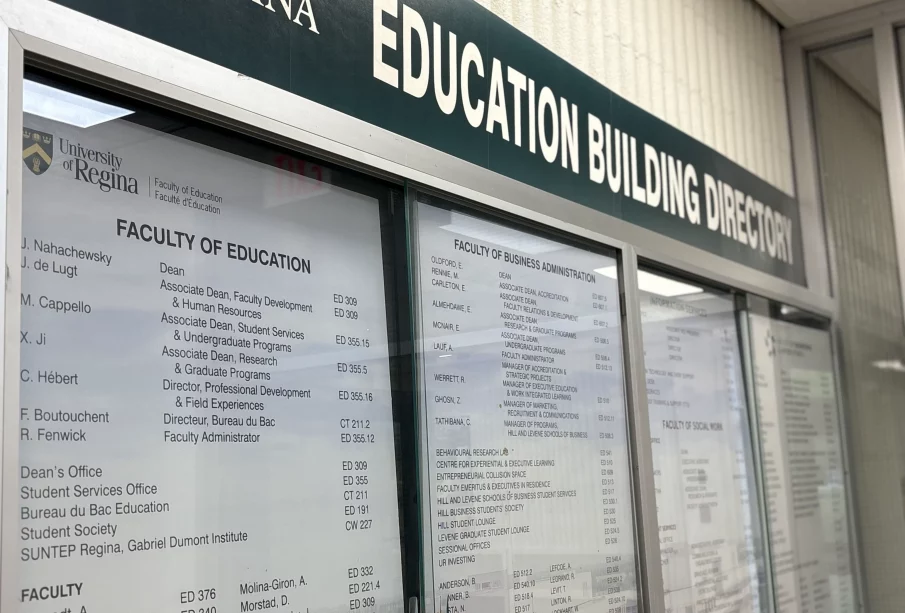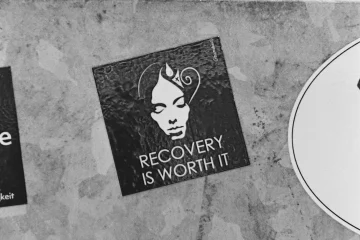This ongoing series offers a closer look at the classes of professors, their academic work, teaching methods and their advice to set students up for success.
Interview with Colleen Strauch, Director, Non-Profit and Voluntary Sector Studies Network at the University of Regina(UofR) – Luther College
What are the courses that you teach at Luther College, including the Nonprofit Sector Leadership & Innovation (NSLI) internship course?
I teach the NSLI Internship in the Certificate in Nonprofit Sector Leadership & Innovation (NSLI), which is the only program of its kind in the province. The Certificate can be taken as a concurrent program, and it is open to any undergraduate student at the U of R. The courses focus on the nonprofit and voluntary sector, social innovation, leadership, and community engagement.
One of the capstone opportunities [at Luther College] is the internship course, where students work directly with a nonprofit organization. This gives them hands-on experience with a local nonprofit organization. It is an opportunity for students to apply what they’ve learned in the classroom to real-world challenges and opportunities in local organizations.
How is the NSLI internship course different from a traditional classroom course in terms of experiential learning?
The internship course moves learning beyond lectures and textbooks into lived practice. Students collaborate with nonprofit organizations on meaningful projects, often tied to sustainability, community development, or organizational strategy. This allows them to build professional relationships, gain practical skills, and reflect critically on how theory connects to practice. Students have worked on strategic plans, event planning, fundraising, volunteer appreciation events, and strategic communication plans for local organizations like Habitat for Humanity, the Cathedral Community Association, and Regina Food for Learning, to name a few.
What skills or insights do students typically gain from the internship course that they might not in a regular class?
Students often tell me that the internship builds their confidence and helps them see themselves as leaders. Just as importantly, they gain insights into the values and challenges of working in the nonprofit sector, including balancing community needs with limited resources. They appreciate the change to take on community projects in a supportive environment that allows them to make a difference while receiving course credit.
In June 2024, you received a CBC Saskatchewan Future 40 Award — what does this recognition mean to you, and how does it connect to your work with students?
I was honoured to receive the CBC Saskatchewan Future 40 Award. To me, the recognition reflects the importance of the nonprofit sector in building vibrant, inclusive communities and the role that education can play in strengthening that work. It also affirms the contributions of our students, including their creativity, curiosity, and commitment, are what make this work so rewarding.
What do you enjoy most about teaching and supporting students?
The most rewarding part is watching students discover their own strengths and passions. I love seeing them make connections between what they’re learning and the impact they can have in their communities. Supporting them through internships allows me to witness their growth in real time as they develop into thoughtful, engaged professionals. Many of our students have transitioned to work or volunteer board positions with the nonprofit sector, and I love seeing them act as changemakers in our communities.
What advice do you have for students who have an interest in pursuing careers in the nonprofit and voluntary sector?
Be open to learning from the communities you serve, and don’t underestimate the value of curiosity, compassion, and persistence. The nonprofit sector is incredibly diverse. From arts and culture, to health, to climate action, and it needs people who are willing to think critically, collaborate, and innovate. Start by volunteering or taking the NSLI Certificate and take every opportunity to build relationships and learn from experienced leaders in the field.
It also affirms the contributions of our students, including their creativity, curiosity, and commitment, are what make this work so rewarding. – Colleen Strauch, Director, Phd Students, Luther College
Interview with Dr. Muhammad Asadullah, Associate Professor at the University of Regina’s Department of Justice Studies.
What are the courses that you currently teach in Criminal and Justice Studies?
JS 100 and JS 319. Both courses are interactive, participatory, and there are lots of guest speakers. I am also inviting Elders and Knowledge Keepers to my classes.
What areas of criminal justice do you find students are most engaged with in your classes?
Labelling theory, restorative justice, Indigenous Justice, and justice theories are the major themes that students are attracted to.
How does your professional experience in the field influence the way you teach?
My research and community work heavily influence my teaching. I will bring community practitioners, justice stakeholders such as [the] Chief of Human Rights Commission, Chief of Police, Chief Judge, ED of John Howard Society, and Regina Food Bank in my classes. I also bring folks involved with [the] justice system in my class.
What advice do you have for UofR students who are interested in pursuing a career in criminal justice?
Volunteering with different justice agencies is a great way to pursue a career in the criminal justice system. And also volunteering with community based justice organizations are important. Organizations such as John Howard Society, Elizabeth Fry Society, Circle of Support and Accountability, and Regina Alternative Measure Program are important in this regard.
According to you, what are the important skills that students gain through studying criminal justice?
A holistic understanding of the concept of justice and crime. Students also gain practical skills of active listening, conflict resolution, and crime analysis from our courses.
In 2024, you received the CTL Teaching Award for excellence in teaching — what does this award mean to you?
This recognition means a lot to me. It definitely affirmed my participatory teaching styles and pedagogy. It also inspired my colleagues and students.
Stay tuned as we bring the voices for more faculty members for you. You may find your next elective or a great mentor!
If you would like to learn more about the faculty at the First Nations University of Canada, check out Amanda Leader’s radio show, Academic Vibes, at CFNU Radio! Listen now at https://www.cfnuradio.ca/academic-vibes









